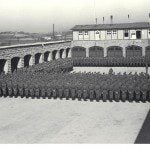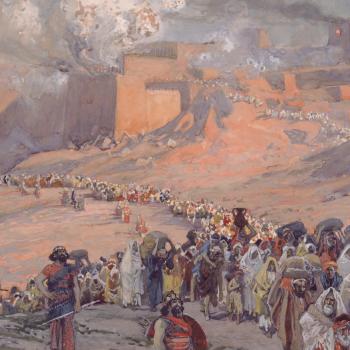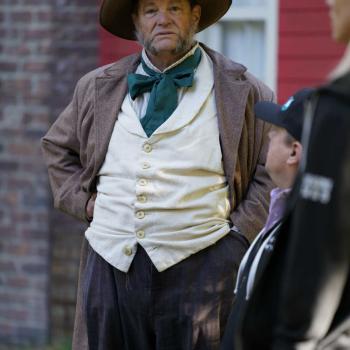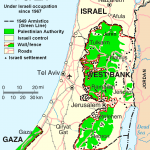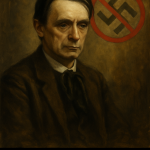
I have worried a great deal about the destruction of Gaza and the great loss of life — of men, women, and children, of both the horrifically guilty and the completely innocent — that is occurring there. But I have also been disturbed to watch some people ignore or excuse (or even, in some cases, endorse) the appalling brutality of the surprise 7 October 2023 Hamas attack on Israel that precipitated the current disaster. I have no love for Hamas, and I would be happy to see that loathsome organization completely eliminated.
Regardless of your political views — I myself can think of no good reason to entirely trust the statistics and other claims emerging from the situation in Gaza, and journalistic reports from the area are seriously compromised in multiple ways — it’s undeniable that conditions there are catastrophic and tragic. There is genuine suffering in Gaza. If you have looked on in horror but felt unable to do anything to help, you might find this worthwhile. I learned about it from Jamal Qureshi, a member of the Church of Jesus Christ of Latter-day Saints and a graduate of Brigham Young University. One of the organizers of the effort is Hani Almadhoun, himself a Gazan and an alumnus of BYU: gofundme: Hot meals 4 Starved Palestinian Kids in north Gaza. I invite you to consider making a donation.
I also call your attention to an important article, published yesterday in the Deseret News, that was written by Khosrow B. Semnani and Amir Soltani — two people whom I know, like, and respect: “Opinion: We cannot ignore starvation in Gaza any longer”
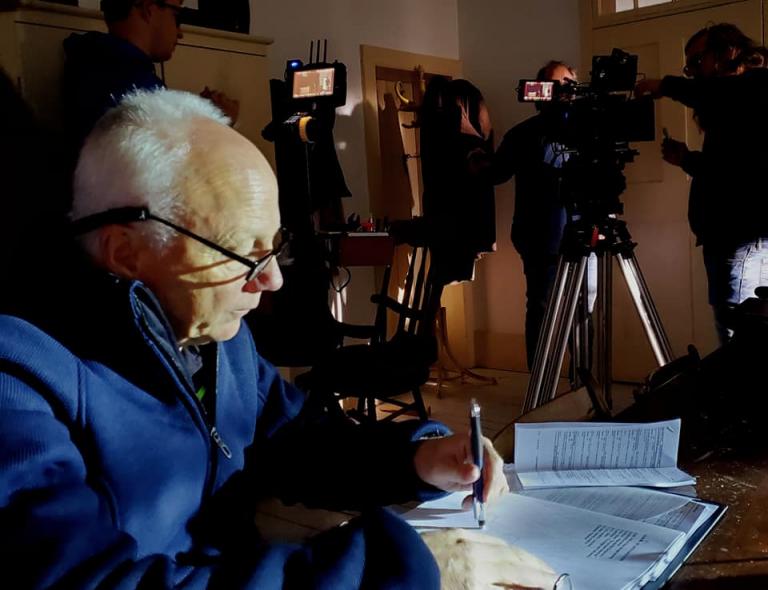
Those of us who’ve been centrally involved in them — that is, the core film-making team and the on-camera hosts — had a first screening on Friday night, with our spouses, of four of the Interpreter Foundation’s short Becoming Brigham documentary videos in their almost-finished form.
I was very pleased with what I saw. I think that they’re interesting and well done, and watching them has increased my already high enthusiasm for the project.
I’m gratified to note, too, that the Church Historical Department is now significantly invested in this effort. They’re not only happily providing scholars for interviews but have been suggesting topics, facilitating our access to historic sites, etc. We’ve never had this level of official support before.
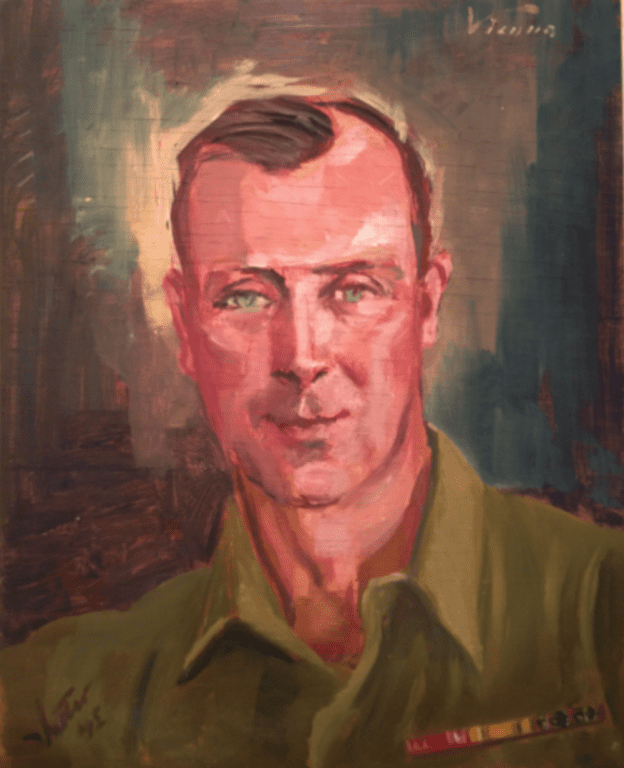
Of course, I don’t receive support from everywhere. As part of an interfaith relations assignment, a friend attended a Utah sacrament meeting of the Community of Christ today. She reports that the sermon was heavily critical of the Church of Jesus Christ of Latter-day Saints — rather a surprise, that, because (I’m happy to say) we never feature such sermons (or lessons or brochures) against other faiths — and, of all things, that it criticized me by name. And in another location, online, I’m under heavy attack for having posted a couple of pretty mild memes that, in the impassioned judgment of several people, committed the unforgivable crime of lèse-majesté against the currently-serving President of the United State (PBUH).
Here’s the one, though, that I wish to address: I posted a blog entry yesterday off the top of my head about some of my father’s experiences at the end of the Second World War, when he was assigned to or embedded with the 11th Armored Division, experiences that he related to me as I was growing up. Among other things, I recounted an anecdote from the evening that the death of President Franklin D. Roosevelt was announced. It involved a couple of drunken fellow-sergeants and a photographer for the Army newspaper The Stars and Stripes.
I placed that incident in Paris. Somehow, I’ve always thought of it as having occurred in Paris. Had I checked the relevant publicly available dates, though, I would have realized that it couldn’t have happened in Paris. And my wife was able to supply me with some materials that she had derived from my father’s few surviving letters, etc., that have clarified the situation for me. Here’s a timeline:
- 12 April 1945 — Franklin Roosevelt dies. The episode with the Stars and Stripes reporter occurs on the evening of the day, European time, that the news reaches the troops. Where, I don’t know.
- 3 May 1945 — SS and other guards essentially abandon the concentration camp KZ-Mauthausen prior to the arrival of the United States Army.
- 5-6 May 1945 — KZ-Mauthausen and almost all of its subordinate camps are liberated by elements of the 11th Armored Division. My father was present for this. Mauthausen lies on the Danube River between Salzburg and Linz, so he was in Austria in early May.
- 7 May 1945 — Germany surrenders.
- 10 June 1945 — My father is in Gmunden, Austria, helping with captured prisoners of war. His portrait (shown above) is painted there by Theodor Detter in exchange for military ration cigarettes. An inscription in pencil on the back of the plyboard on which the portrait was painted reads as follows: “Ich freue mich sehr Ihr Bild gemalt zu haben: bleiben Sie bitte mir weiter gut gesinnt. Ihr Theo Detter Gmunden Esplanade 6” (“I’m very happy to have painted your picture. Please remain friendly toward me. Yours, Theo Detter. Gmunden, Esplanade 6”). Why the word Vienna is written in the upper righthand corner of the painting, I do not know, except for the fact that Theodor Detter was born in Vienna and had only recently come to Gmunden. His work is represented in such places as the Oberösterreichisches Landesmuseum, the Albertina (Vienna), the Historisches Museum der Stadt Wien (Vienna), und the Belvedere Palace (Vienna).
- 24 June 1945 — My father is in Mauerkirchen, Austria, in the state of Oberösterreich, working with prisoners of war.
- 19 July 1945 — We have a torn transport ticket from London bearing this date. Was my father in London in July? He never mentioned it. He had been stationed in London, or rather about halfway between London and Oxford in High Wycombe, before being sent to the continent, and, for certain reasons, I don’t believe that he ever went back.
- 17 August 1945 — We have a letter that he wrote to his parents from Paris on this date. He is living in Le Vesinet and waiting to go home. For various bureaucratic reasons, his return is repeatedly delayed.
- 21 September 1945 — He finally departs Paris for the port of Antwerp, Belgium.
- 4 October 1945 — He sails from Antwerp.
- 12 October 1945 — He arrives in Boston.
Over at the Peterson Obsession Board, after hesitating for several seconds, the defamation committee arrived at its predetermined default conclusion: My bungled implicit timeline shows, to their satisfaction, that the story I related was entirely made up. As always, I’m lying. However, the problem seems to be solved when it’s recognized that, although I had assumed that the story of the newspaper photographer and the two drunken sergeants occurred in Paris, it quite plainly did not. I’ve modified yesterday’s blog entry accordingly.
Working out the details of a narrative of family history is not the worst way to spend part of a Sabbath day. The trouble is that I have a lot of other things that I need to do.


